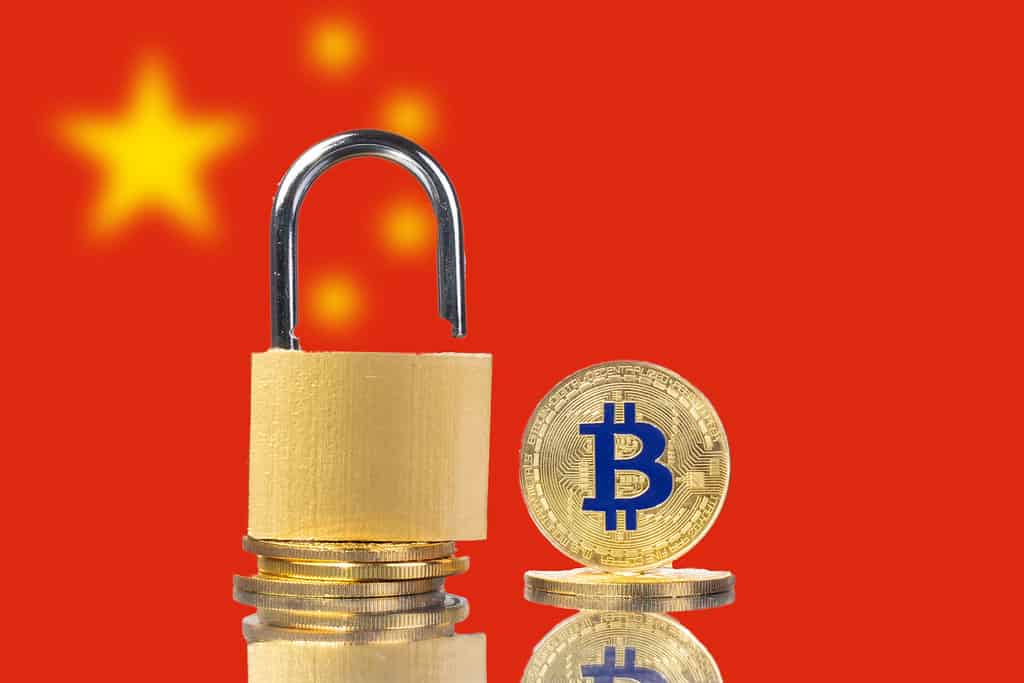Part One of a Two Part Interview with Nicholas Krapels, Blockchain Lead at Konstellation
In the first of a two-part interview with China Banking News, Nicholas Krapels, Blockchain Lead at Konstellation and Adjunct Professor in Strategy and Entrepreneurship at the Suzhou campus of SKEMA Business School, provides insights on how domestic investors in China can still get their hands on bitcoins to impact global prices, as well as the nuances of the Chinese government’s actual stance on cryptocurrencies.
Xi Jinping’s recent remarks helped drive surge in bitcoin prices
Bitcoin prices surged to as high as $10,332 on 26 October, just following remarks from Xi Jinping calling for China to embrace the use and development of blockchain technology.
The price shift would appear to indicate that events in China are still capable of exerting a tremendous impact upon the global bitcoin market, despite a crackdown on bitcoin trading platforms launched by the Chinese central bank over two years ago.
“Xi’s remarks certainly played a part in the recent bitcoin price action,” said Krapels to China Banking News, pointing to a sharp spike in related-searches on Chinese social media.
“WeChat exploded with news of Xi’s new stance on blockchain on that Saturday morning, which certainly played a part in getting the price up significantly past $10,000.
“People who would not normally be consumers of blockchain news were exposed to the term from many sources.
“On Thursday October 24, WeChat searches for ‘blockchain’ were around 750,000 per day, which is on the lower end of the average for the past two months.
“Late that Friday evening and into Saturday morning, WeChat searches for the term ‘blockchain’ spiked to over 9 million in a single day on Saturday, October 26.
“That data would seem to support the stance that the Chinese market piled on in a speculative frenzy once they woke up on Saturday morning.”
Savvy investors can still get their hands on bitcoin from within China
Despite the crackdown on bitcoin trading in China, Krapels points out determined investors are still more than capable of acquiring the cryptocurrency from within the country.
“It is very easy for a person interested in bitcoin to buy it in China,” he said.
“The big exchanges like Binance, Huobi and OKex all provide a P2P section where savvy users can purchase key cryptocurrencies like USDT, BTC, and ETH quite easily. But this feature is not provided by the exchange per se and that exchange is not legally domiciled in China.
“Previously, there were many local apps that you could use to deposit Chinese yuan and start trading crypto, much like any stock trading app. But now, most big exchanges are geo-fenced to prevent China IP addresses from onboarding the site.
“Those who are not in the industry or are unfamiliar with the technology certainly find it a lot more difficult to acquire, but I think this bifurcated reality is how China wants it.”
China most concerned about scams and capital controls when it comes to cryptocurrencies
Krapels said that the Western press has failed to accurately gauge the Chinese government’s ongoing stance with regard to cryptocurrencies.
“The Chinese government’s stance on crypto has largely been the same these past few years, he said. “Usually, it is Western media that continually misinterpret their policy stances.
“The Chinese government cares about two basic items when it comes to cryptocurrencies – don’t scam the country folk, and don’t blatantly subvert capital controls.”
Scams that seek to exploit naive regional investors remain rife throughout China, necessitating heightened scrutiny from financial authorities.
“The list of tokens that have ended up as ‘get rich quick’ scams specifically designed to take money out of the pockets of third-tier city grandmas is now too long to even list,” Krapels said.
“In a country where a project that calls its token the ‘Global Win-Win Token’ can raise USD$45 million, regulators have to remain ever vigilant.”
Cryptocurrencies also provide ample opportunity for savvy Chinese investors to move their money abroad, as demonstrated by the impact on bitcoin prices of any ratcheting up of capital controls.
“A lot of bitcoin’s biggest price pumps in history are correlated to the Chinese government clamping down on capital exports,” Krapels said.
“That still seems to be the biggest and best use case for bitcoin. But the Chinese government certainly does not want you advertising to the world that you have figured out a way to do this.
“At a blockchain conference in Korea in 2017, I saw a certain noted Crypto Twitter China specialist brag about how they first came across bitcoin as a means to get their family’s money from China into California so they could fund buying a house.
“Another example is the other day CZ bragged about Binance allowing Alipay as a fiat on-ramp and the official Alipay account on Twitter simply said ‘NO.’ I’m pretty sure the Binance Android app still has this feature though.”




